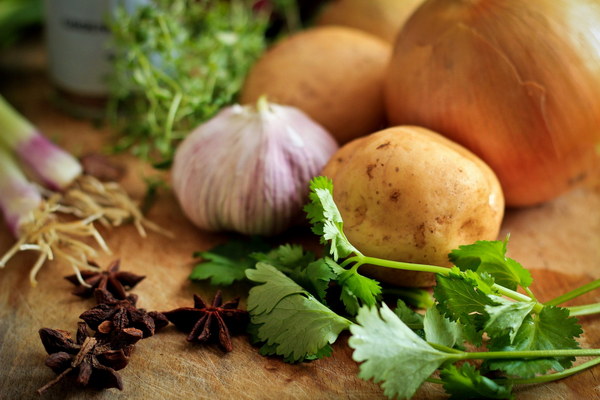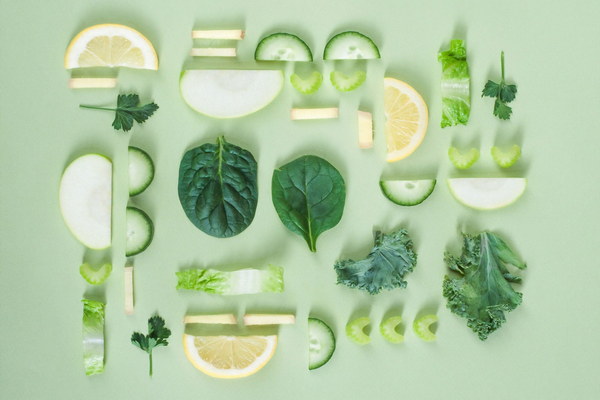Nourish Your Health Discover the Best Vegetables to Eat for Optimal Wellbeing
In today's fast-paced world, maintaining a healthy lifestyle is more crucial than ever. One of the simplest and most effective ways to enhance your health is by incorporating a variety of vegetables into your diet. Vegetables are not only delicious but also packed with essential nutrients, vitamins, and minerals that can help you maintain a balanced and healthy lifestyle. In this article, we will explore some of the best vegetables to eat for optimal well-being, ensuring that you are nourishing your body with the nutrients it needs to thrive.
1. Spinach
Spinach is a leafy green vegetable that is rich in iron, calcium, and vitamins A, C, and K. This nutrient-dense superfood can help improve heart health, boost your immune system, and enhance your vision. Incorporating spinach into your meals can be as simple as adding it to salads, sandwiches, or smoothies.
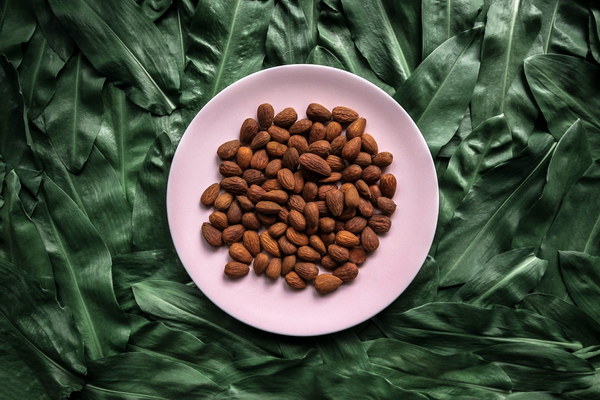
2. Broccoli
Broccoli is a cruciferous vegetable that contains high levels of fiber, vitamins C, K, and A, as well as antioxidants like sulforaphane. This powerhouse of a vegetable can help reduce inflammation, lower the risk of certain cancers, and support your digestive health. Enjoy broccoli steamed, roasted, or raw in a salad for a healthful boost.
3. Carrots
Carrots are an excellent source of beta-carotene, which converts to vitamin A in your body. This nutrient is essential for maintaining healthy vision, skin, and immune function. Add carrots to your diet by snacking on them raw, incorporating them into soups, or using them as a base for a colorful salad.
4. Sweet Potatoes
Sweet potatoes are a nutritious and delicious alternative to white potatoes. They are rich in beta-carotene, vitamins A and C, and fiber. This versatile vegetable can help improve digestion, support heart health, and provide sustained energy throughout the day. Roast, bake, or mash sweet potatoes to enjoy their health benefits.
5. Kale
Kale is a leafy green vegetable that is packed with vitamins A, C, and K, as well as calcium, potassium, and iron. This nutrient-rich superfood can help boost your immune system, improve bone health, and aid in weight loss. Incorporate kale into your diet by adding it to smoothies, salads, or sautéing it with other vegetables.
6. Bell Peppers
Bell peppers are an excellent source of vitamin C, which is essential for supporting your immune system, protecting against infections, and promoting healthy skin. They also contain vitamin A, E, and B6, as well as antioxidants. Add bell peppers to your meals by slicing them into salads, stir-fries, or sandwiches.
7. Tomatoes
Tomatoes are not only a delicious addition to your diet but also a powerhouse of nutrients. They contain vitamin C, K, and A, as well as lycopene, an antioxidant that has been shown to protect against certain cancers, including prostate and breast cancer. Enjoy tomatoes raw, in salads, or cooked in sauces, soups, and stews.
8. Asparagus
Asparagus is a fibrous vegetable that contains vitamins A, C, E, K, and B6, as well as folic acid, potassium, and iron. This vegetable can help improve digestion, support heart health, and reduce inflammation. Roast, steam, or grill asparagus for a healthful side dish.
By incorporating these vegetables into your daily diet, you can ensure that your body is receiving the essential nutrients it needs to maintain optimal health. Remember, variety is key when it comes to a balanced diet, so don't be afraid to experiment with different vegetables and cooking methods. Happy eating, and here's to your health!


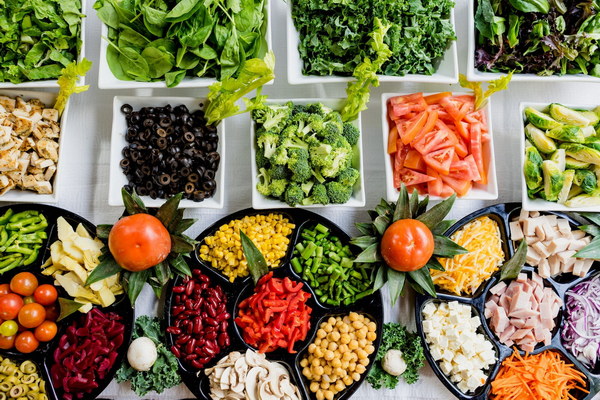

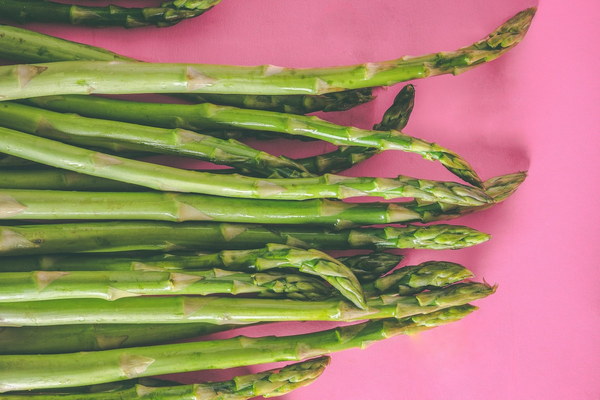
![Discover the Beauty Secrets at Weiyuan Beauty and Skin Care Center, Located at [Address]](http://img.bluepurple.cn/a/养生/426/Discover-the-Beauty-Secrets-at-Weiyuan-Beauty-and-Skin-Care-Center-Located-at-Address.jpg)
